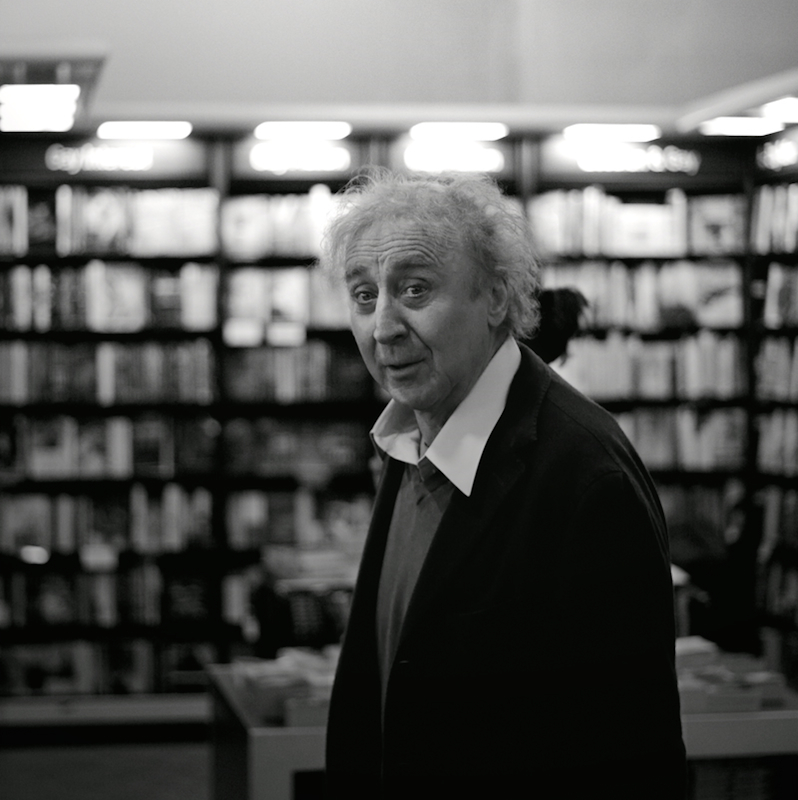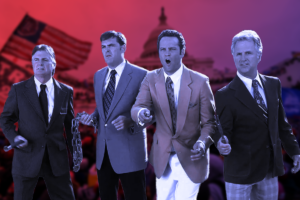Actor Gene Wilder Lived a ‘Quietly Political’ Life (Video)
The renowned comedian and author, who died Monday at the age of 83, appeared in politically progressive films and advocated for stem cell research.
After a long battle with Alzheimer’s disease and non-Hodgkin lymphoma, actor Gene Wilder died in his home on Monday. Wilder was beloved by many for his dynamic character performances, most notably his portrayal of the title role in “Willy Wonka & the Chocolate Factory” and Dr. Frankenstein in “Young Frankenstein.”
Mel Brooks, who worked with Wilder on “Young Frankenstein” as well as “The Producers” and “Blazing Saddles,” said Wilder “blessed every film we did with his magic” and “blessed me with his friendship.” Dozens of other comedians and celebrities have chimed in on social media to express their admiration for Wilder and his work.
Daniel Lewis of The New York Times writes of Wilder’s life:
Gene Wilder was born Jerome Silberman in Milwaukee on June 11, 1933. His father, William, a manufacturer and salesman of novelty items, was an immigrant from Russia. His mother, the former Jeanne Baer, suffered from rheumatic heart disease and a temperament that sometimes led her to punish young Jerry angrily and then smother him with regretful kisses. …
[He] enrolled part time at the HB Studio in New York, while also serving a two-year Army hitch as an aide in the psychiatric unit of the Valley Forge Army Hospital in Pennsylvania—an assignment he requested because, he said, “I imagined the things I would see there might relate more to acting than any of the other choices.” He added, “I wasn’t wrong.”
After his discharge, he won a coveted spot at the Actors Studio, and it was then that he adopted the name Gene Wilder: Gene for Eugene Gant, the protagonist of Thomas Wolfe’s “Look Homeward, Angel,” and Wilder for the playwright Thornton Wilder.
Wilder was not known for being overtly political, but he engaged in activism and liberal politics without fanfare through much of his life. In 2007, Wilder contributed $2,300 to Barack Obama’s presidential campaign. He said at the time:
I’m quietly political. I don’t like advertising. Giving money to someone or support, but not getting on a bandstand. I don’t want to run for president in 2008. I will write another book instead. …
I like Barack Obama. I think he has a chance. It’ll be difficult. It would be a great move forward for the US. But he isn’t being guarded for no reason.
Wilder also believed in the importance of medical research. Wilder’s first wife, Gilda Radner, died in 1989 from ovarian cancer. “In memory of Ms. Radner,” Lewis writes, “he helped to found an ovarian cancer detection center in her name, in Los Angeles, and Gilda’s Club, a network of support centers for people with cancer.”
Several years later, Wilder himself developed non-Hodgkin lymphoma. In 2000, he was treated with a nonembryonic stem cell transplant. “It saved my life,” he said of the treatment, and he continued to vocalize his support of stem cell research. “This is not what you take from a fetus,” Wilder added, addressing the controversy that often surrounds stem cell research. “[T]his is taken from your own blood.”
“I saw Christopher Reeve at the U.S. Open tennis championships in 2004. I told him ‘I had a stem cell transplant,’ ” Wilder explained. “He was going to have an embryonic one in two months’ time, in another country and he died six weeks later. It’s insane. The lives that could be saved.”
As an author, Wilder wrote nonfiction such as the memoir “Kiss Me Like a Stranger,” as well as novels including “Something to Remember You By.”
Many of Wilder’s films, while comedic, touched upon politically and socially divisive issues. Below, seven of Wilder’s most hilarious, radical films:
1. “Blazing Saddles” deals with political incorrectness and race relations. Mel Brooks has since said that studio executives told him to “cut out any racial and ethnic jokes,” but actor Richard Pryor who co-wrote the movie “stuck behind the work.”
2. “Stir Crazy,” a darkly comedic look into the prison system, made history as the first time a movie with an African-American director (Sidney Poitier) grossed over $100 million.
3. “Start the Revolution Without Me,” a parody of the French Revolution, tells the story of two peasants who are mistaken for acclaimed swordsmen.
4. “Young Frankenstein,” which showcases some of Wilder’s best comedic work, draws a parallel to modern-day arguments about bioengineering.
5. “Silver Streak” is one of Wilder’s first films with Pryor, and it contains a controversial scene of Wilder in blackface.
6. “Willy Wonka & the Chocolate Factory,” in which Wilder plays the title role, upset some audiences due to its depiction of a harsh morality test. “The film was a box-office disappointment,” states The New York Times, “partly because of parental concern that the moral of Roald Dahl’s story — that greedy, gluttonous children should not go unpunished — was too dark in the telling.”
7. “The Producers,” another Brooks film, satirically depicts Broadway producers determined to make a box-office failure. Wilder starred as Leo Bloom, an accountant prone to panic attacks. The infamous “Springtime for Hilter” scene stunned audiences and received negative reviews for its ethnic humor.
—Posted by Emma Niles
Your support matters…Independent journalism is under threat and overshadowed by heavily funded mainstream media.
You can help level the playing field. Become a member.
Your tax-deductible contribution keeps us digging beneath the headlines to give you thought-provoking, investigative reporting and analysis that unearths what's really happening- without compromise.
Give today to support our courageous, independent journalists.








